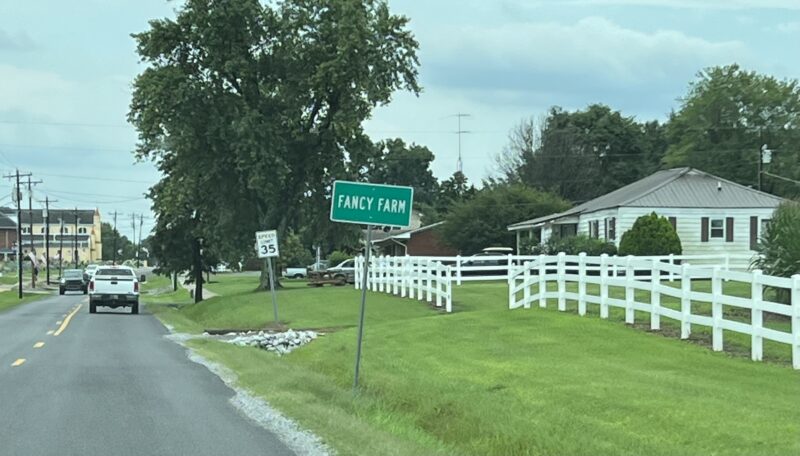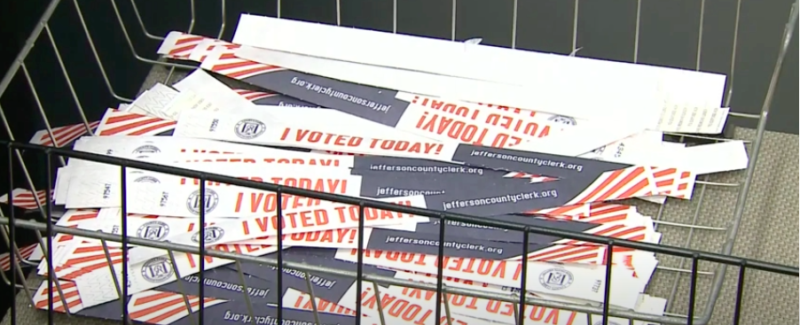From LRC Public Information Officer Mike Wynn:
New laws related to child abuse, drugs, gambling, mental health, gender services, education and dozens of other topics are set to take effect on Thursday after receiving a nod from the Kentucky General Assembly earlier this year.
State lawmakers passed more than 170 bills during the 2023 legislative session, and the Kentucky Constitution states that new laws take effect 90 days after the legislature adjourns, making June 29 the effective date for most measures.
The only exceptions are bills that have special effective dates, are general appropriation measures, or include emergency clauses that make them effective immediately upon becoming law.
That means that, among many changes to state law this week, people convicted of murdering children will face tougher penalties, operators of gray machines could be subject to fines, certain workforce training programs will qualify for state scholarships, and wellness programs will provide more confidentially for doctors and police.
Here’s a look at some of the measures taking effect on Thursday:
Child Abuse: Senate Bill 229 seeks to ensure that law enforcement, social services and other authorities are properly notified and are communicating with each other in cases of child abuse. It also requires agencies under investigation to cooperate with authorities.
Child Murder: House Bill 249 makes the intentional killing of a child under age 12 an aggravating circumstance. That ensures that a person who is guilty of killing a child would either be subject to life in prison without parole or the death penalty.
Delta-8 THC: House Bill 544 directs the state Cabinet for Health and Family Services to develop regulations related to delta-8 THC by Aug. 1. That includes regulations on product testing, packaging and labeling, along with prohibitions that prevent anyone under 21 from buying or possessing delta-8 products. While the bill technically takes effect on Thursday, Kentuckians will not see many changes until the cabinet’s regulations are finalized and implemented.
DUI Restitution: Senate Bill 268 allows courts to order restitution for children whose parents are killed or permanently disabled by an intoxicated driver.
ESG Investing: House Bill 236 requires that the state’s public pension investments be based on financial risks and returns and not on environmental, social and governance factors, commonly known as ESG.
Fentanyl Test Strips: House Bill 353 removes fentanyl test strips from state prohibitions on drug paraphernalia unless the strips are used in the manufacture or selling of the drug.
Gender and Sexuality: Senate Bill 150 is a wide-ranging bill focused on health services and school policies related to gender and human sexuality. Many provisions in the bill took effect immediately, including the portions on school policies. However, the June 29 effective date applies to a section of the bill that bans puberty blockers, hormones and gender-related surgeries for minors.
Gray Machines: House Bill 594 clarifies that certain gambling machines, often called “gray machines” or “skill games,” are illegal in Kentucky. The devices are called gray machines because they have operated in a gray area in the state’s gambling laws while growing more prevalent at gas stations and convenience stores over the past two years. Under HB 594, anyone who manages or owns the machines could be subject to a $25,000 fine per device.
Hazing: Senate Bill 9, known as “Lofton’s Law,” elevates reckless or dangerous acts of hazing to a crime. First-degree hazing will qualify as a Class D felony, while second-degree hazing will be a Class A misdemeanor.
Incest: House Bill 78 more specifically defines Kentucky’s incest laws by prohibiting a person from having sexual intercourse with his or her parent, child, grandparent, grandchild, great-grandparent, great-grandchild, uncle, aunt, nephew, niece, brother, sister, first cousin, ancestor or descendant.
Juvenile Detention: House Bill 3 requires that juveniles charged with a violent felony offense be detained up to 48 hours pending a detention hearing with a judge, beginning July 1, 2024. The bill also seeks to improve parental accountability, expand mental health interventions and enhance options for restorative justice. Other provisions provide funds toward the reopening the Jefferson County Regional Juvenile Detention Center.
KEES for Workforce Training: Senate Bill 54 allows students to use a Kentucky Educational Excellence Scholarship to attend certain propriety school programs and workforce training programs that are focused on high-demand work sectors. Students could also use KEES funds at an eligible college of art and design.
Motor Vehicle Racing: Senate Bill 96 sets up a framework for local governments to grant permits for motor vehicle racing events as long as certain conditions are met on insurance, security and emergency services. It also allows local governments to temporarily close roadways and waive traffic regulations for the events.
Physician Wellness: Senate Bill 12 allows physicians to participate in wellness and career fatigue programs without disclosing their participation to employers. Supporters say it will help physicians deal with job-related burnout without fear of retaliation.
Police Wellness: House Bill 207 allows law enforcement agencies to provide confidential wellness programs to support employee mental health. Specifically, it shields records of a wellness program from subpoenas and open records requests.
Postpartum Depression: Senate Bill 135 calls on the state Cabinet for Health and Family Services to create a panel focused on perinatal mental health disorders and provide related information and assessment tools online.
Religious Freedom in Schools: House Bill 547 codifies religious freedoms for public school teachers, faculty and staff, including the right to engage in religious expression and prayer during breaks and to display religious items in personal spaces.
Sex Offenders: Senate Bill 80 prohibits registered sex offenders from loitering or operating a mobile business within 1,000 feet of schools, daycares, and public playgrounds or swimming pools. One section of this bill related to sex offender residences does not take effect until next year.
Sports Wagering: House Bill 551 creates a structure to legalize, regulate and tax sports wagering in Kentucky under the auspices of the Kentucky Horse Racing Commission. Only licensed tracks will be permitted to obtain a sports wagering license, and the bill sets up a fund to address problem gambling. It also prohibits minors from placing wagers. While the bill technically takes effect on Thursday, Kentuckians will not see many changes until the racing commission finalizes and implements regulations related to sports wagering.
Student Discipline: Under House Bill 538, school boards are required to adopt policies related to expelling students who pose a threat to the safety and well-being of others and disciplining students who have physically assaulted, battered or abused personnel or other students off school property if the incident is likely to disrupt the educational process. HB 538 also provides more flexibility to place students into alternative learning programs.
Teacher Shortages: House Bill 319aims to ease teacher shortages by cementing Kentucky’s place in the Interstate Teacher Mobility Compact. The compact seeks to ease licensing barriers for teachers moving into the state. HB 319 also requires the Kentucky Department of Education to establish a statewide job posting system.
Tracking Devices: Senate Bill 199 outlaws, with some exceptions, the installation of tracking devices on motor vehicles without the consent of the vehicle owner or lessee.




 Login
Login  Must include at least 8 charaters
Must include at least 8 charaters


